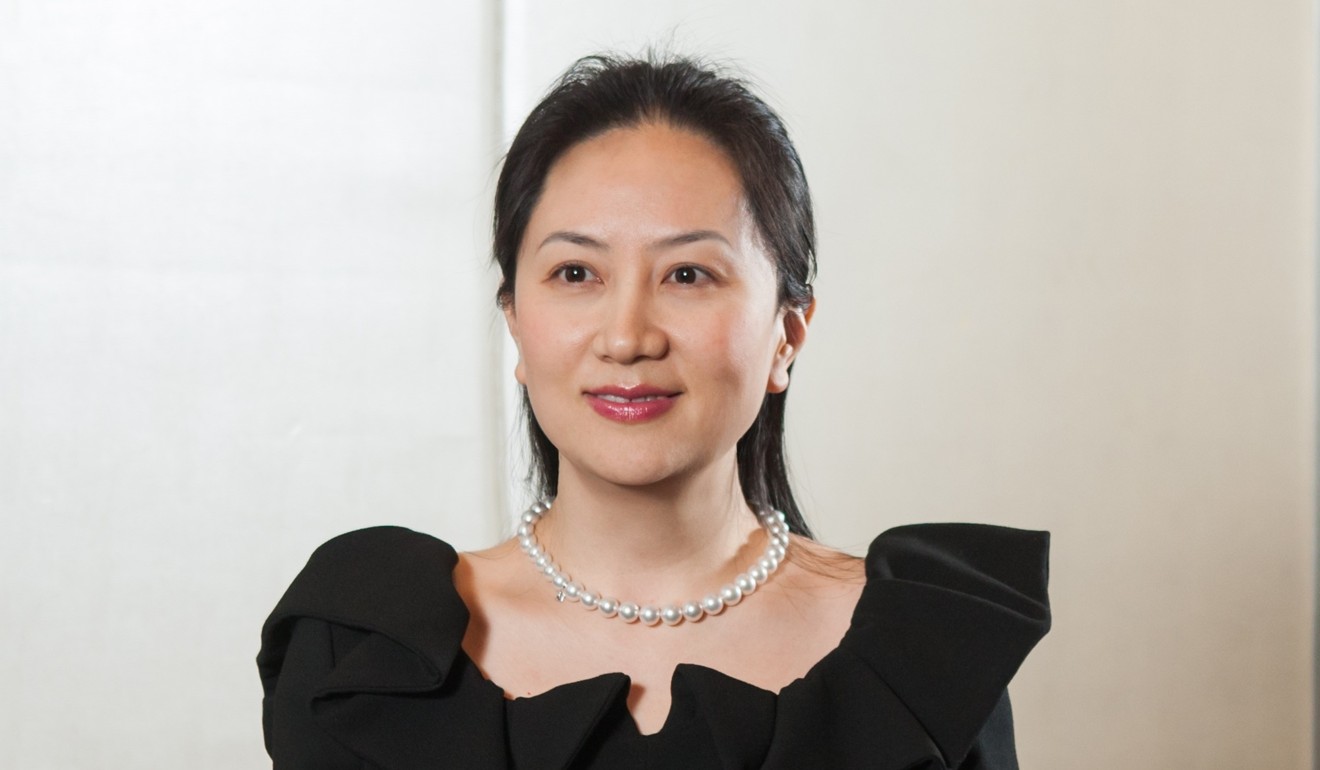
Huawei CFO’s arrest poses a threat to China’s global 5G mobile ambitions
- The world’s largest telecoms equipment provider faces the risk of US sanctions, which could block access to American hi-tech components and limit the number of markets where the firm can sell its products
China’s push to lead the global development and roll-out of 5G mobile networks could be at risk, following the recent arrest of Huawei Technologies chief financial officer Sabrina Meng Wanzhou.
Analysts on Thursday said the arrest and detention in Canada of Meng, the daughter of Huawei founder Ren Zhengfei and the firm’s deputy chairwoman, at the request of US authorities marked another level of pressure on the Shenzhen-based company by Washington even as the US and China agreed to a 90-day trade war truce.
“It is not yet clear whether there has been a breach committed, but for the CFO to be detained we can expect serious accusations to be levied against Huawei in the coming days,” said Paul Haswell, a partner who advises technology companies at international law firm Pinsent Masons.
Haswell said efforts by Huawei, the world’s largest telecommunications equipment maker, to lead global 5G network deployments may be hampered if it incurs US sanctions, which would block access to American technology suppliers and limit the number of markets where the company can sell its products.
Meng, who was arrested in Vancouver on December 1 while in transit, is facing extradition to the US. The Huawei CFO, whose bail hearing is scheduled this Friday, had earlier sought a publication ban on the details of her arrest, according to Canada’s justice department.
Beijing had already lodged protests with Washington and Ottawa, and offered consular help to Meng soon after she was detained, Chinese foreign ministry spokesman Geng Shuang said on Thursday.

The Huawei CFO’s ordeal has heightened speculation that Huawei could be targeted with a ban on purchasing US hi-tech software and hardware, which was slapped on ZTE Corp earlier this year for making false statements about disciplining executives involved in violating US trade sanctions on Iran and North Korea.
That ban forced Hong Kong-listed ZTE, China’s second largest telecoms equipment manufacturer, to shut down its major operations. It was lifted after the company reached a settlement with US authorities.
“Just like ZTE, Huawei also relies on US suppliers for its business,” said Hu Jiaming, Shanghai-based analyst with Capital Securities. While Huawei is said to have a backup group of suppliers, the switch to non-US tech suppliers would bring uncertainty to its supply chain operations and overall business, Hu said.
Although Huawei and ZTE are leading China’s bid to become the leading supplier of advanced telecoms equipment to the world’s mobile carriers, the two companies and their respective ecosystems of hi-tech suppliers remain dependent on a range of US-developed technologies, including software and semiconductors.
Both companies are also deeply invested in the research and development of 5G, artificial intelligence and semiconductor technologies, which are among the major areas covered by Beijing’s “Made in China 2025” – the programme that has become a lightning rod in the trade war between the US and China.
Ken Hu Houkun, Huawei’s rotating chairman, told the Nikkei Asian Review in an interview in Japan published earlier this month, that the company’s ambition to take the lead in 5G mobile technology should not be politicised.
5G networks, which would serve as “the connective tissue” for new mobile applications such as the internet of things, autonomous cars and smart cities, are critical for China to build the foundation of a more advanced economy.
The Trump administration, however, has been particularly sensitive with the advances being made by Chinese companies in 5G mobile technology because of national security concerns and areas like semiconductors, where the US has had a big head start on China in terms of investments and technological innovation.
“The US government has alliances with other countries that could restrain China’s technological development, which could potentially become a bigger problem,” James Yan, research director at Counterpoint Technology, said on the ramification of Meng’s arrest.
Questions about the security of Huawei’s equipment re-emerged this week after New Zealand blocked use of the Chinese firm’s equipment for the country’s 5G development plans, months after Australia barred both Huawei and ZTE equipment from its own 5G infrastructure.
Washington’s campaign on strong telecoms safeguards appear to focus on the countries belonging to the intelligence alliance known as the Five Eyes, which comprise the US, Canada, the United Kingdom, Australia and New Zealand. Three members of this group have now made a stand against Huawei.
“The top concern [for Huawei] is the US’ sway on other English-speaking countries,” said Jia Mo, Shanghai-based analyst with Canalys. “They tend to respond to US’ moves and attitudes towards Huawei technology.”
If more of these countries shun Huawei’s telecoms products, it would slow down the company’s international business expansion, and force it to slash 5G research and development initiatives.
To be sure, Huawei has continued to push forward its 5G initiatives and has signed 22 contracts overseas, according to a report this week by Jefferies equity analyst Edison Lee. Huawei recently announced a contract with Altice Portugal, one of 15 carriers in Europe that have committed to use the firm’s 5G equipment.
British telecoms giant BT Group, however, said this week that it was removing Huawei equipment from the core 3G and 4G networks of EE, the largest mobile network operator in the UK. It said Huawei was not a supplier to EE’s core 5G network project.
“In light of those developments, we may be looking at a global telecoms market where Huawei is locked out of a significant part of the world,” Haswell said.


